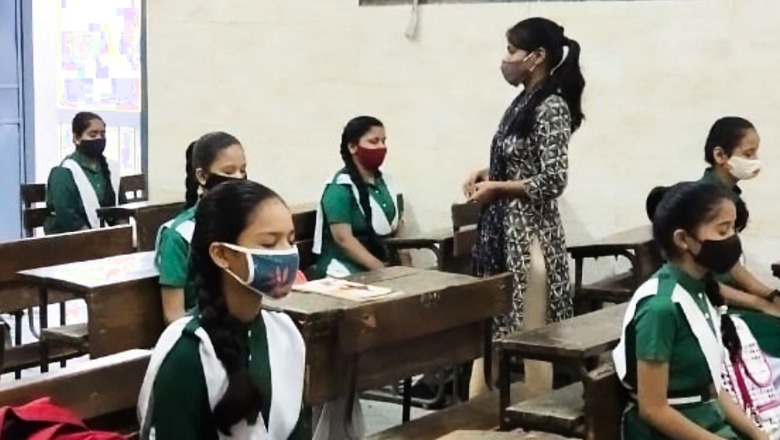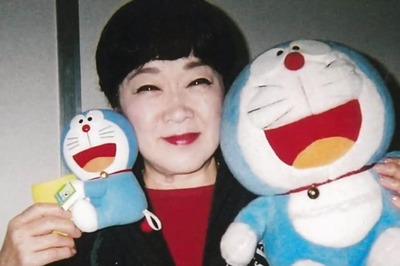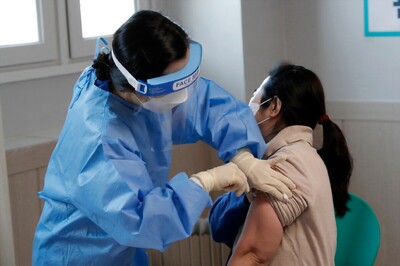
views
The Central Board of Secondary Education (CBSE) on Wednesday told the Supreme Court that it has duly followed the assessment scheme in evaluating marks of class XII students whose exams were cancelled due to the COVID-19 pandemic. The counsel appearing for the CBSE made the statement before a bench of Justices A M Khanwilkar and C T Ravikumar which was hearing a batch of pleas, including those which have alleged that the board has failed in properly implementing the procedure of dispute redressal mechanism relating to the result of class 12 exams.
We have duly followed the policy, the counsel representing the CBSE told the bench. On June 17, the top court had approved the assessment schemes of the Council for the Indian School Certificate Examinations (CISCE) and the CBSE, which had adopted the 30:30:40 formula for evaluation of marks for students of 12th standard based on results of class 10, 11, and 12 respectively.
During the hearing on Wednesday, the counsel appearing for petitioners in one of the pleas referred to a chart and claimed there was a variance of around 24 per cent between the marks of one of the students as per the 30:30:40 formula and the marks awarded by the CBSE after moderating it with school average score. That is the evaluation scheme. Is it not? The school performance is also relevant, the bench observed.
The bench asked the counsel appearing for the CBSE about the grievance raised by the petitioners. The CBSE’s counsel, while referring to an affidavit filed by the board in the matter, said the chart showing variation in marks has been prepared on the basis of the wrong reading of the evaluation policy. He said the affidavit has stated that the chart referred to by some of the petitioners has been prepared by taking into account only one component of the overall computation of marks, whereas the evaluation policy provides for taking into consideration several other relevant aspects, including historical performance of the school, overall school average and moderation criteria, for which a special software was developed by the board.
The counsel said the board has said in its affidavit that once all the data is fed into the software, it automatically analyses the performance of students for that particular year on the basis of the policy. The lawyer representing some of the petitioners said their school has also made a complaint to the CBSE on this aspect.
The petitioner’s counsel said he would file a rejoinder to the CBSE’s affidavit after which the bench granted him one week’s time for it. On October 8, the apex court had asked the CBSE to file its response on two separate pleas on the issue. One of the petitions has claimed that the board has failed in implementing the procedure of dispute resolution mechanism, prescribed in a circular which was issued in August this year in compliance with the apex court’s June 17 order.
On June 17, the top court had approved the assessment schemes of the CISCE and the CBSE and had also said that it should incorporate the provision for dispute resolution in case students want correction of the final result. One of the petitions, filed by class 12 pass-out students, has claimed that their marks have not been calculated based on their actual performance adopting the 30:30:40 formula of the CBSE.
It said the petitioners have been awarded lessor marks, causing great prejudice to them. The plea has alleged that the CBSE provided the mechanism for dispute resolution but only on paper and failed in implementing the same in reality which has caused great prejudice to the petitioner students and it will cause irreparable loss to them if the same gets unresolved.
It said the issue for consideration before the apex court is whether or not the concerned authority is duty-bound to decide the cases raised through the proper channel of dispute redressal mechanism bypassing a reasoned/ speaking order after considering the peculiar facts and circumstances of the case. It has also sought direction that their results be declared based on the 30:30:40 formula and by taking into account the actual marks obtained by them.
The CBSE had earlier said it would evaluate class 12 students for theory based on 30 per cent marks from class 10 board, 30 per cent from class 11, and 40 per cent from marks based on the performance in the unit, mid-term, and pre-board tests in class 12. It had said that marks obtained by class 12 students in practical and internal assessment on an actual basis as uploaded by schools on the CBSE Portal would be also considered in deciding final results.
The top court had on June 17 referred to the schemes of assessment of both the boards and said there was no question of reversing the earlier decision regarding cancellation of examination because no prejudice will be caused to students as they can still appear in the optional examination to be concluded in due course. The court had passed the order while hearing the pleas seeking directions to cancel the class 12 exams of the CBSE and CISCE amid the pandemic situation.
Read all the Latest News , Breaking News and IPL 2022 Live Updates here.

















Comments
0 comment